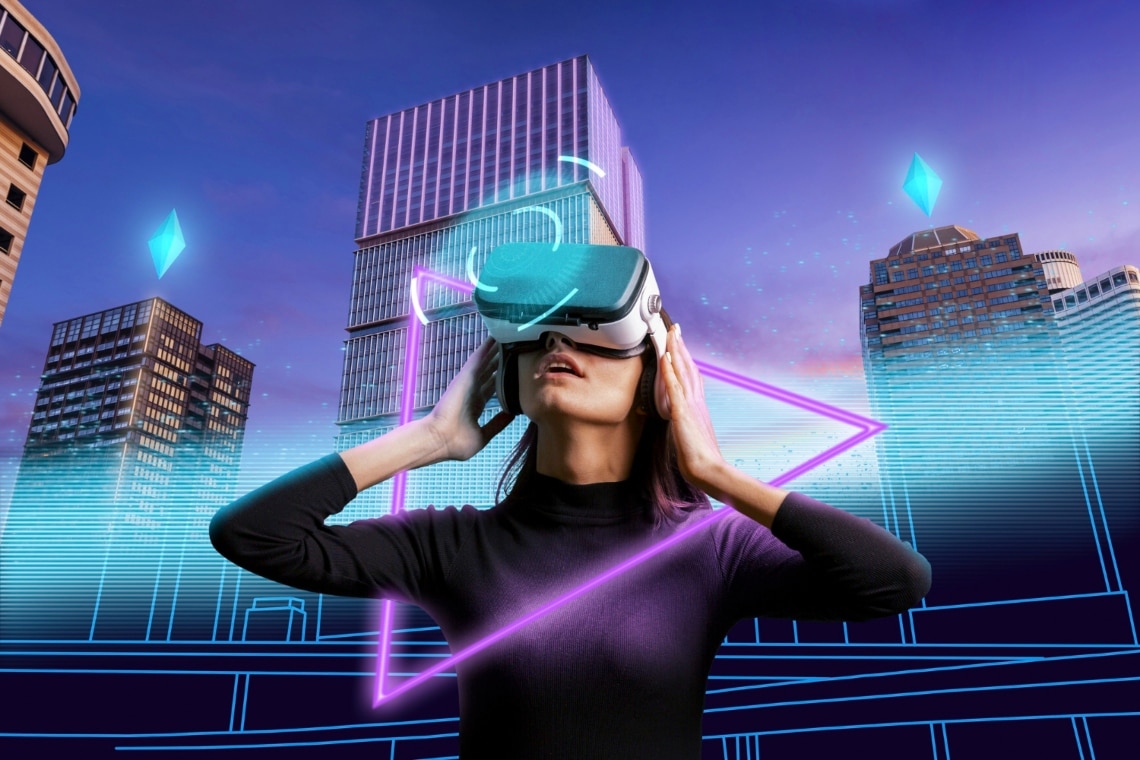Imagine a world where virtual and physical realities merge, creating infinite possibilities for how we work, play, and connect. That’s the essence of the metaverse, a concept that has gone from science fiction to one of the most promising trends in technology. But what exactly is the metaverse, and why are companies like Meta, Microsoft, and Google pouring billions into it?
This captivating digital space has the potential to revolutionize industries, redefine how we interact, and push the boundaries of innovation. From virtual workplaces to gaming universes and social experiences, the metaverse is reshaping our understanding of digital connection. And as our devices become more interconnected—like learning how to connect two airpods to one phone—we’re already seeing steps toward a more immersive, shared digital future.
In this guide, we’ll explore what the metaverse is, why it’s becoming a tech industry obsession, and what its rise could mean for the future of technology and everyday life. Get ready to uncover the virtual frontier everyone’s talking about.

How the Metaverse Is Changing Social Connections
The metaverse is revolutionizing how we connect with others, mixing physical and virtual worlds to create new ways of interacting and building relationships. Virtual spaces allow people to meet, collaborate, and socialize beyond geographical boundaries, opening up doors to global community-building. From captivating multiplayer games to virtual concerts, these experiences redefine how we connect and share moments.
One significant benefit is inclusivity. The metaverse creates opportunities for people with physical or social barriers to participate in activities they might not otherwise access. It offers unique ways for individuals to express themselves and find like-minded communities.
However, these shifts come with challenges. Building genuine, meaningful relationships in a virtual setting can be tricky, as digital interactions can sometimes lack emotional depth. Privacy concerns also arise as people spend more time socializing in these spaces.
Ultimately, the metaverse presents both exciting potential and critical questions about how we interact as a society. It’s a dynamic space that continues to evolve, redefining what “connection” looks like in the digital age. How will you shape your role in this new frontier?
Why Tech Giants Are Investing in the Metaverse
Tech giants are pouring billions into the metaverse, viewing it as the next frontier of digital innovation. Companies like Meta, Google, and Microsoft see untapped potential in creating immersive environments that blur the line between physical and virtual life. This investment isn’t just about technology; it’s about shaping the future of how people work, play, and interact.
At its core, the metaverse offers enormous revenue opportunities. From virtual real estate to digital goods and services, it enables entire new economic ecosystems. Tech companies aim to position themselves as leaders by creating platforms where users spend time and money, promoting long-term customer loyalty.
The competitive landscape also drives this burst of interest. Major players are racing to define standards and claim market dominance, staking their ground while the industry is still in its infancy. Beyond financial gains, the metaverse aligns with their long-term vision of integrating cutting-edge technologies like AI, VR, and blockchain.
Ultimately, for these companies, investing in the metaverse is about innovation, influence, and shaping tomorrow’s digital economy. Will they succeed in creating a world we all want to be part of?
The Future of the Metaverse: Hype or Revolution?
Is the metaverse just another tech buzzword, or could it truly revolutionize our lives? Advocates argue it has the power to transform industries like entertainment, education, healthcare, and e-commerce. Imagine captivating learning environments, virtual therapy sessions, or shopping experiences where you interact with products before purchasing. The possibilities seem limitless.
Yet, skeptics question whether this vision is realistic or sustainable. Challenges like high development costs, technological limitations, and privacy concerns loom large. Many wonder if the metaverse will serve niche audiences rather than achieve mainstream adoption. Critics also highlight the risk of deepening social and digital divides, as not everyone may access or afford these advancements.
While the metaverse carries insane potential, it also faces growing pains that could determine its trajectory. Whether it becomes a revolutionary force or fades into tech history depends on how its promises align with real-world needs. For now, the metaverse straddles the line between hype and innovation. The question is, are we ready to meet it halfway?
Conclusion
The metaverse holds the potential to redefine how we live, work, and connect, driven by major tech investments and groundbreaking innovations. While its future remains debated, one thing is clear: the metaverse is no longer mere speculation. The question is, how will we shape and adapt to this evolving digital frontier?
To stay informed on developments like these and more, explore our collection of other tech articles covering the latest trends and innovations shaping tomorrow’s world.





